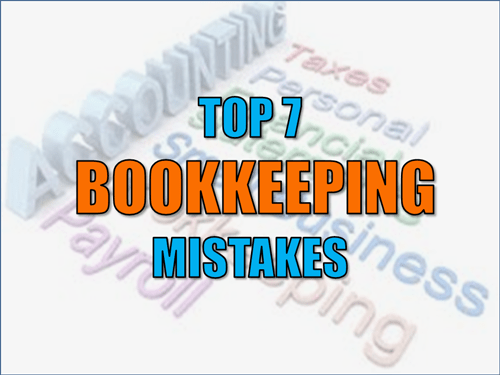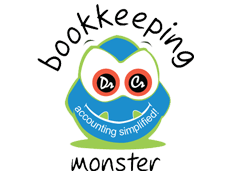CONTACT
Quick Contact
Error: Contact form not found.
Recent Posts
Categories
Top 7 Bookkeeping Mistakes
At Bookkeeping Monster, we counsel several grumbling business owners who complain endlessly about how flawed their bookkeeping went and what havocs it rendered to their business. Bookkeeping is a nightmare for most small business start-ups, and those of you, who believe of doing it right, in reality, are yet to nail it.

Top 7 Bookkeeping Mistakes
To understand the importance of bookkeeping for any business, answer this question: why two fourth of all small business start-ups fail within first few years of operations? Poor financial management and miscalculation of funds are top reasons behind early operational hiccups leading to business failures. Isn’t the reply freakishly disturbing? Read on, you’ll end up satisfied.
Most business-heads have no idea about how to approach their bookkeeping. In order to manage your funds properly and run a successful business, you first need to get your bookkeeping right. The mistakes which almost every other small business owner makes are common and can’t be ignored. Follow our list of 7 top common bookkeeping mistakes and find how to get it right.
Doing it with outdated or wrong accounting method: Using wrong accounting method is one thing quite common with start-ups. When you are new and starting out, simple accounting approach like cash accounting tends to work out well, but as you grow, you must switch to accrual accounting because cash fluctuations are recorded in a better way by this approach. Business owners must realize the time to make this shift and be intuitive enough to do it, because it keeps the balance between books and allows you to keep a vigilant eye on your cash.
Personal and business finances are two different things and you must address them separately, no matter how big or small you are. Business owners must open a separate business account to manage business funds and properly overlook the way funds are taken out from business earnings to meet personal expenses and saving goals.
Classification of workers is as important as keeping a record of their salary. You must classify them appropriately to suitable categories like full-time, part-time, independent contractor or temporary employees. This allows you to calculate payroll tax more accurately and list the employees who are eligible for employee benefits.
Account Reconciliation is an important aspect of bookkeeping as it allows you to keep track of cash flow. Most business owners ignore this, but it is one of the basics you must follow every month. It’s pretty simply and you just have to compare your books and bank statements for any discrepancies.
Keeping track of miscellaneous expenditure is not common with most business owners. They tend to get nonchalant about petty cash; however this money can amount to large sums and can get beneficial at time for tax returns. Keep receipts for small expenditures like postal, stationary, food and others and try to use these receipts for tax deduction wherever possible.
Profits and Cash Flow are two different things and business owners must understand the difference between the two. Your cash flow for a term may be negative and you still might have a profitable term or vice versa. Cash flow statements are no judge of how profitable any particular term has been for you; balance sheet is! It’s better to create balance sheet and income statement on a monthly basis and analyse the position of your business as per it.
The “do-it-yourself” approach to bookkeeping is often the most prone to errors with business owners juggling between different roles. Giving your books in a non-professional and less competent hand, even if it is yours, is the last thing you’d like to do with your business. Do it yourself approach is fine in the beginning, but as the days go by and you grow several folds, this doesn’t pay off well, so switch before it’s too late.





